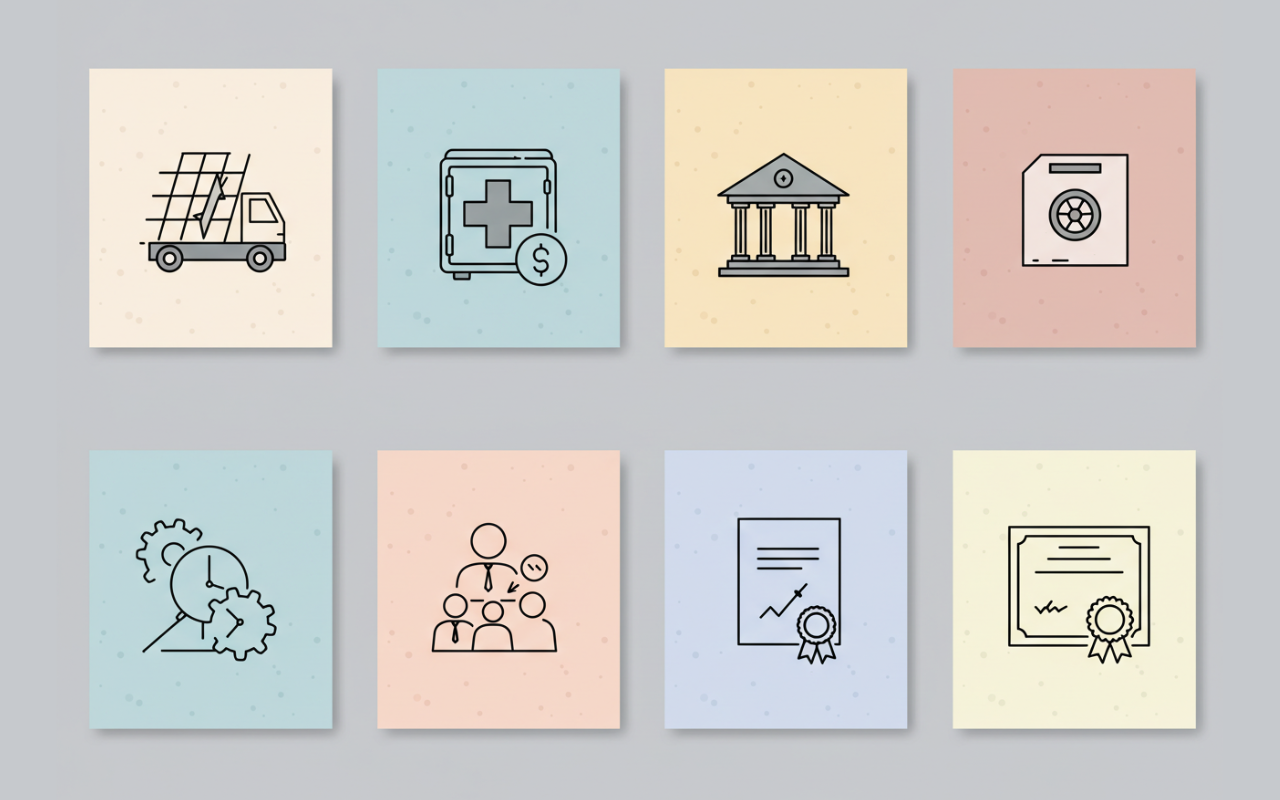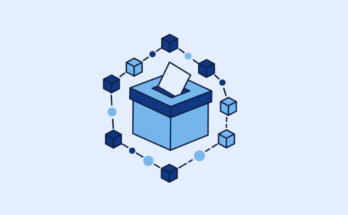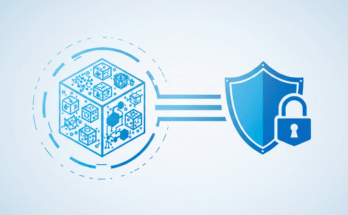Blockchain, the decentralized ledger behind cryptocurrency, is revolutionizing numerous industries. It is efficient, trustworthy and can store data securely, qualities which cannot be altered.
Food companies have started using blockchain to track products’ journey from origin to consumer and provide assurance of its safety, while other applications include mitigating election fraud and speeding up real estate transactions.

1. Smart Contracts
Blockchain smart contracts automatically execute terms of an agreement when certain conditions are fulfilled, making them useful across industries to reduce risk and enhance transparency. Due to blockchain records being encrypted, they’re nearly impossible to alter without altering all computers in the distributed ledger network, making any tampering impossible. Any change requires making updates across all of them simultaneously, something which would prove costly in practice.
Smart contracts can reduce procure to pay lag time by tracking physical product arrivals and transferring funds directly to sellers, thus providing greater control of working capital management as well as reduced accounting expenses for both parties.
2. Energy
Blockchain technology’s secure and transparent recording method of data allows for private information and ownership rights to remain safe, an especially beneficial feature for artists such as music and art creators who can utilize non-fungible tokens (NFTs) to verify their copyrights.
Blockchain technology also presents numerous streamlined opportunities for industries that must manage large amounts of information and data, including reduced management costs by eliminating lag time, human error, management bottlenecks and bottlenecks in systems. Furthermore, blockchain provides transparency and traceability of information.
3. Copyright
Copyright is a system of legal rights designed to safeguard creators’ economic returns from their creative work, such as their right to attribution and reputation. Blockchain provides an impregnable method of data storage, meaning private information cannot be altered or erased by third-parties. Making it ideal for protecting intellectual property.
Many countries are already making use of blockchains for public administration. Estonia uses them to store its citizens’ health records, something which reduces costs while simultaneously increasing interoperability, transparency, and security.
4. Supply Chain
Blockchain technology has emerged from cryptocurrency to transform various industries such as e-commerce, finance, healthcare, media and government operations. Blockchains can transform supply chains by increasing transparency and traceability.
Companies can track food products as well as detect counterfeiting. Walmart and Proctor & Gamble linked their supply chains so that when certain P&G items were running low in stores, an alert went straight to the distribution center with instructions to send more. This reduced costs, increased efficiency, and eliminated manual processes altogether.
5. Identity
Identity is a potency concept with many dimensions; it can take the form of labels, norms or an established position within society. Identity systems are critical components of running and automating enterprises, and Blockchain technology can further strengthen these systems by tracking and verifying information through incentivized oracle networks.
At present, millions of people live without official identification documents, making essential services harder for them to access. Blockchain solutions could help address this problem and enable citizens to access essential services more readily while protecting digital identities from bad actors while increasing privacy and protecting personal data.
6. Banking
Blockchains offer transparency, security and accountability without relying on central authority. Blockchains help build trust while decreasing fraud while cutting costs and saving time and effort. Transferring money between bank accounts typically takes days; but with blockchain-infused banking this could take mere minutes or seconds.
Blockchain technology can also be utilized to tokenize oil resources and enhance commodity trading operations, as well as integrate IoT devices for added safety and intelligence, creating what are known as blockchain killer applications.
7. Insurance
Blockchain provides a transparent and unalterable record of transactions. This technology is used for various applications including document timestamping, voting systems, product inventories, state ID verification and deed transfers for homes.
Blockchain technology is also being employed to bolster systems for tracking food products from their source through the supply chain, helping identify outbreaks more rapidly and potentially saving lives. Furthermore, oracle networks and smart contracts implemented via Blockchain allow cross-border transactions to occur faster and at reduced costs, giving this form of transaction another dimension of protection against risk.
8. Media
Blockchain is a distributed ledger technology used to record transactions digitally. While most famous for its use in cryptocurrencies, its application extends into other areas including supply chain management, healthcare and finance.
Blockchain technology enables transparent, immutable recording of various types of data points, such as payments, votes in elections, product inventory and state identification numbers or deeds to homes, including payments and deeds of ownership transfers. Voting systems built upon blockchain eliminate voter fraud while permitting remote voting with security and privacy in mind.
9. Healthcare
Blockchain solutions can be utilized to improve healthcare transparency and efficiency. Medical goods, like prescription medicines, can be tracked from manufacturer to customer, helping reduce counterfeiting and fraud. Shared digital contracts stored on a blockchain may help alleviate disputes between manufacturers, distributors and healthcare organizations.
Patients’ medical records can often be fragmented across healthcare facilities and systems, limiting interoperability. By integrating BT into EHR data sharing securely with patient consent and to guarantee its integrity by tracking every amendment or change to it. BT ensures healthcare outcomes improve further.
10. Real Estate
Real estate is a business involving the purchase and sale of properties, requiring significant amounts of capital as well as expert management skills to succeed. Additionally, this industry continues to evolve as new technologies enter the marketplace.
As more buyers seek energy-efficient homes with sustainable features, sustainability practices are becoming increasingly sought-after. Blockchain technology is also making strides in real estate, protecting transactions while streamlining processes by providing transparent and verifiable records of transactions. Real estate professionals are also taking advantage of technology through virtual reality and big data analytics to better understand consumer preferences and make more informed decisions.



![[Tesla Stock vs. Bitcoin] Which One Leads the Market in 2025?](https://mineatech.com/wp-content/uploads/2025/06/tesla-stock-vs-bitcoin-which-one-leads-the-market-in-2025-348x215.png)